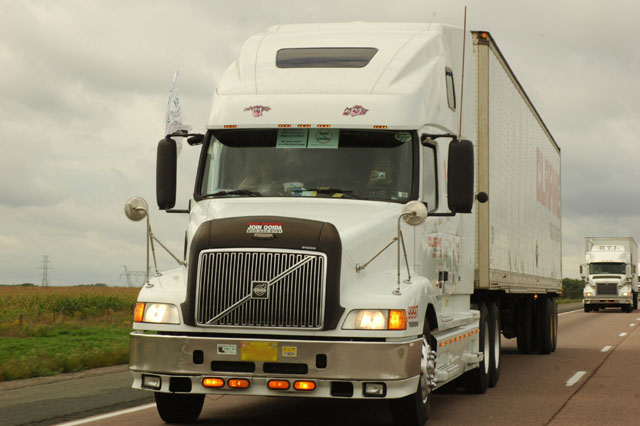 Since July 2005 when the OTA first started to push this issue, the political supports have been growing. A recent comment from the OPP’s commissioner Julian Fantino shows his support, The Minister of Transportation Donna Canfield also, even Prime Minister Dalton McGivney has fallen under media pressure according to a press release of the Association on its web site. The official opposition in Queen’s Park support to with Laurie Scott and her Private Bill 115 proposed in 2006.
Since July 2005 when the OTA first started to push this issue, the political supports have been growing. A recent comment from the OPP’s commissioner Julian Fantino shows his support, The Minister of Transportation Donna Canfield also, even Prime Minister Dalton McGivney has fallen under media pressure according to a press release of the Association on its web site. The official opposition in Queen’s Park support to with Laurie Scott and her Private Bill 115 proposed in 2006.Last year, when the Quebec Government presented the “Plan d’action Québécois 2006-2012 sur les changements climatiques”(Quebec’s plan for Climate Changes 2006-1012), the figures show a reduction of GHG by imposing a government mandate to have all heavy trucks limited to 105Kmh.
I have to say that I don’t have the exact number for the truck count in
A total of 330kt is what the document forecasts for 2012 while
Still to this day, nothing is in the plans for light vehicles in
When will we have higher fines for speeders? Air pollution tickets for speeders, in general, over the fines for smoking heavy trucks? If I can allow me a comment on speeding, cut the 20Kmh tolerance over the posted speed limit. A tolerance of 5Kmh if enough and a fine scaling to discourage lead foot or repeating offenders. Why is it only to heavy trucks to do the effort? Speeding and fines, this is surely another topic to talk about.
What can we do, professional drivers, to put a stop to the issue or to start up a real debate on mandating speed limiters to regulate the speed of heavy trucks?
A few easy solutions can make a difference. We, Owner-operators and drivers, have to regroup to show our strength. In
You must also let you elected officials know about the impacts of these mandates can have on your income, on you business. You can find on the “Useful Links” in the right column, how to access to your MPP or MP, the sites of the Premiers of
I invite you to have another look at some previous posting on this blog.
March 2007: “Sharing My Views on Driver Pay and Leases to O-O’s”
January 2007: “Aren’t you tired of dying dummies? It’s enough!”
If some influent members of the trucking industry want to level the playing field by imposing on all to activate the speed limiting chip of the ECM of trucks starting from 1995, like in
Asking to everyone to operate the same way, by modifying laws, is like asking the governments to step back and regulating the road transportation. This time, it’s not the permitting that is to be regulated, it’s the operations that will be. The deregulation was asked to let the market do its job in the industry, to take away the barriers of territories and the multiplicity of permits.
We need to remember that the economies of
Jean Catudal









